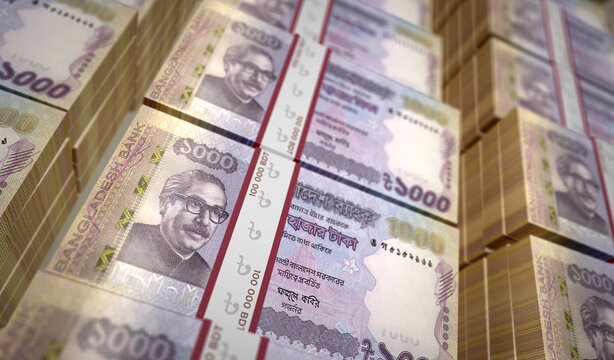
Due to persistent high inflation, people’s ability to save is decreasing. Its effect on the sale of government savings bonds has been visible for a long time. Again, Treasury Bills and Bonds are getting much higher interest now. As a result, the government’s debt in savings bonds is decreasing instead of increasing.
According to the data of Bangladesh Bank, in the first 10 months of the current fiscal year, the government’s debt in savings bonds has decreased by Tk 14,648 crore compared to the last fiscal year. In the last financial year, it decreased by 3 thousand 296 crores compared to the previous financial year. As a result, the government’s reliance on bank loans is increasing in recent times.
Those concerned said that there are other reasons for the decrease in the sale of savings certificates besides the decrease in the saving capacity of people. Once upon a time the rich used to invest large sums of money anonymously in savings bonds. Corruption money was also invested here. That opportunity has been greatly reduced as savings card management has gone digital. Apart from this, the upper limit of purchase in the name of a single person has also been reduced.
It is known that the government has become more dependent on bank loans to meet the budget deficit at the end of the fiscal year. Yesterday, the government took a loan of Tk 3000 crore by calling a special auction of 91-day treasury bills. In the main budget of the current financial year, there was a target of Tk 1 lakh 32 thousand 395 crore loan from the banking system. However, in the revised budget, the target has been increased to Tk 1 lakh 55 thousand 935 crore.
In the current financial year 2023-24 till last May, the government’s debt from the banking system has increased by 61 thousand 320 compared to the last financial year.
crore, which is 15.57 percent. A bank loan target of Tk 1 lakh 37 thousand 500 crore has been fixed for the next fiscal year amid various distresses including liquidity crisis, lack of confidence in the banking sector.
In the main budget of the current financial year, the target was to take a loan of 18 thousand crore rupees from savings bonds. In the revised budget, the target has been fixed at 7 thousand 310 crores. Such a target has been given to match the budget figure. And the target of borrowing 15 thousand 500 crore rupees from savings certificates has been set for the next financial year.
According to the data of Bangladesh Bank, keeping money in one-year treasury bills now earns 12 percent interest. The highest interest rate on treasury bonds has risen to 12.80 percent. Which is higher than savings paper. Again no tax has to be paid against the profits of treasury bills and bonds. Inverse tax concessions are available. However, the profit on bank deposits and savings certificates is taxed at the prescribed rate. Also, Treasury Bills and Bonds are considered to be the safest of any investment.
A senior official of Bangladesh Bank told Samakal that inflation has been close to 10 percent for more than a year. Adoption of contractionary monetary policy to control inflation
has been Due to which the initiative has been taken to reduce the supply of money in the market. Apart from this, against the sale of dollars, money from the market is entering Bangladesh Bank. Selling dollars in the market is one of the reasons for the decline in foreign exchange reserves. Last Wednesday, the reserves were 19.47 billion dollars. At the end of last December which was 21.87 billion dollars. Earlier in the history of the country, the house crossed 48 billion dollars in August 2021.
Overall, the government’s bank loans have increased, but the government is not borrowing from the central bank. This is because government borrowing from the central bank fuels inflation. The government’s debt to Bangladesh Bank has been reduced by Tk 16 thousand 797 crore till last May. At the same time, commercial banks increased by 78 thousand 117 crores. In total, the government’s debt in the banking sector stands at 4 lakh 55 thousand 98 crores. In the 11th month of the current financial year, the government’s bank debt has increased by 15.57 percent. Whereas the private sector debt increased by 9.90 percent in one year till last April. At the end of April last year, private sector credit increased by 11.28 percent.

 Reporter Name
Reporter Name 























